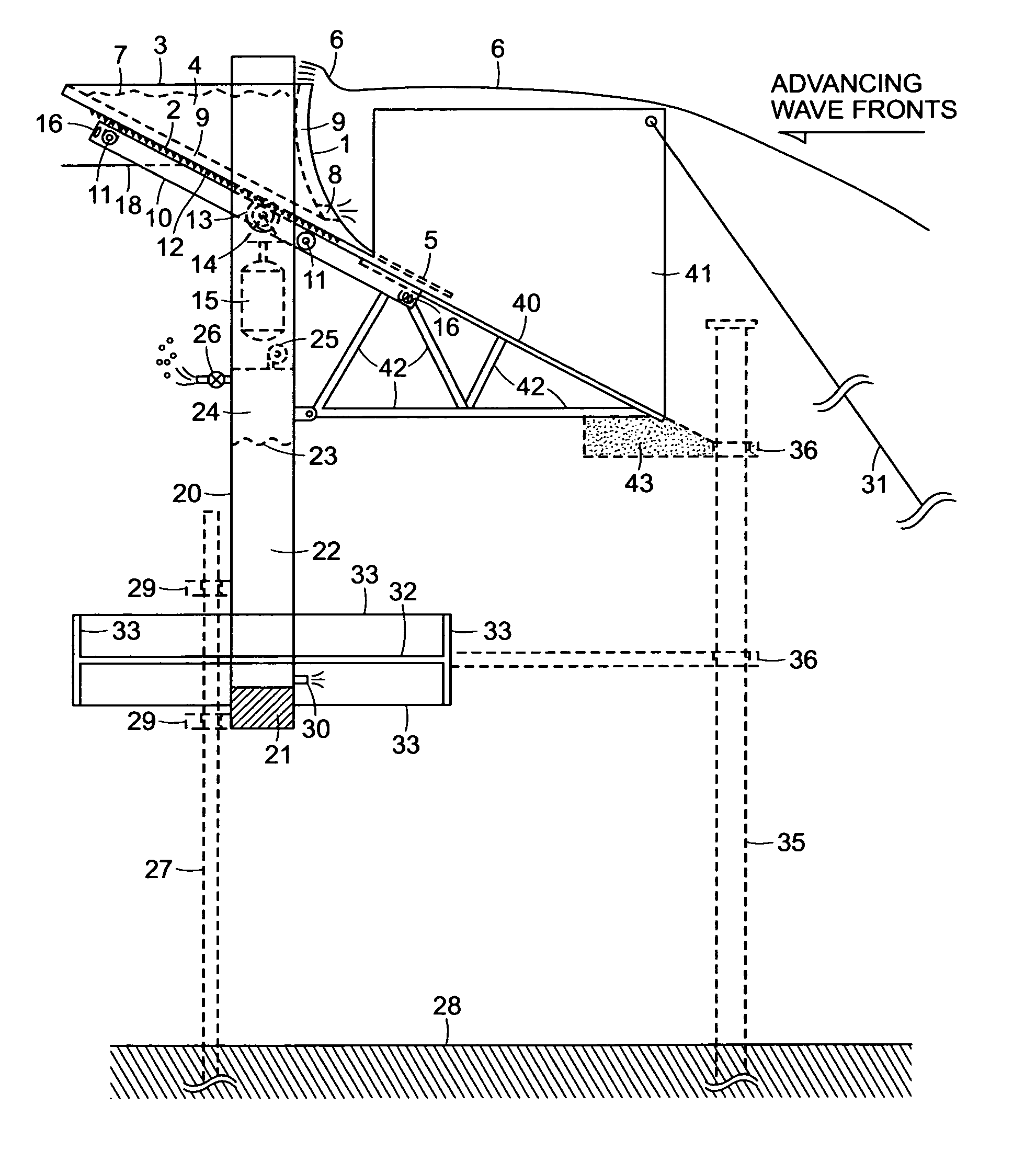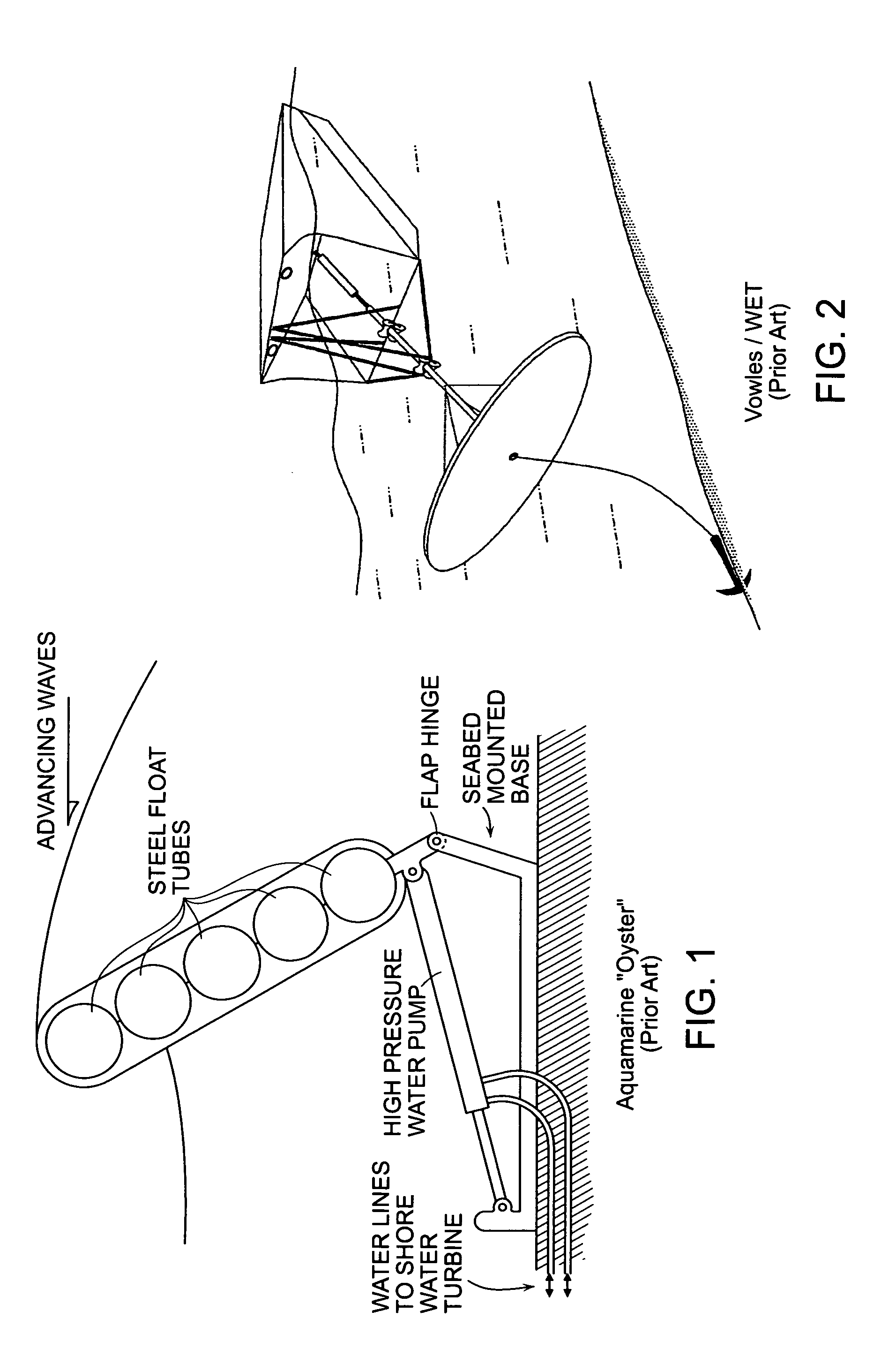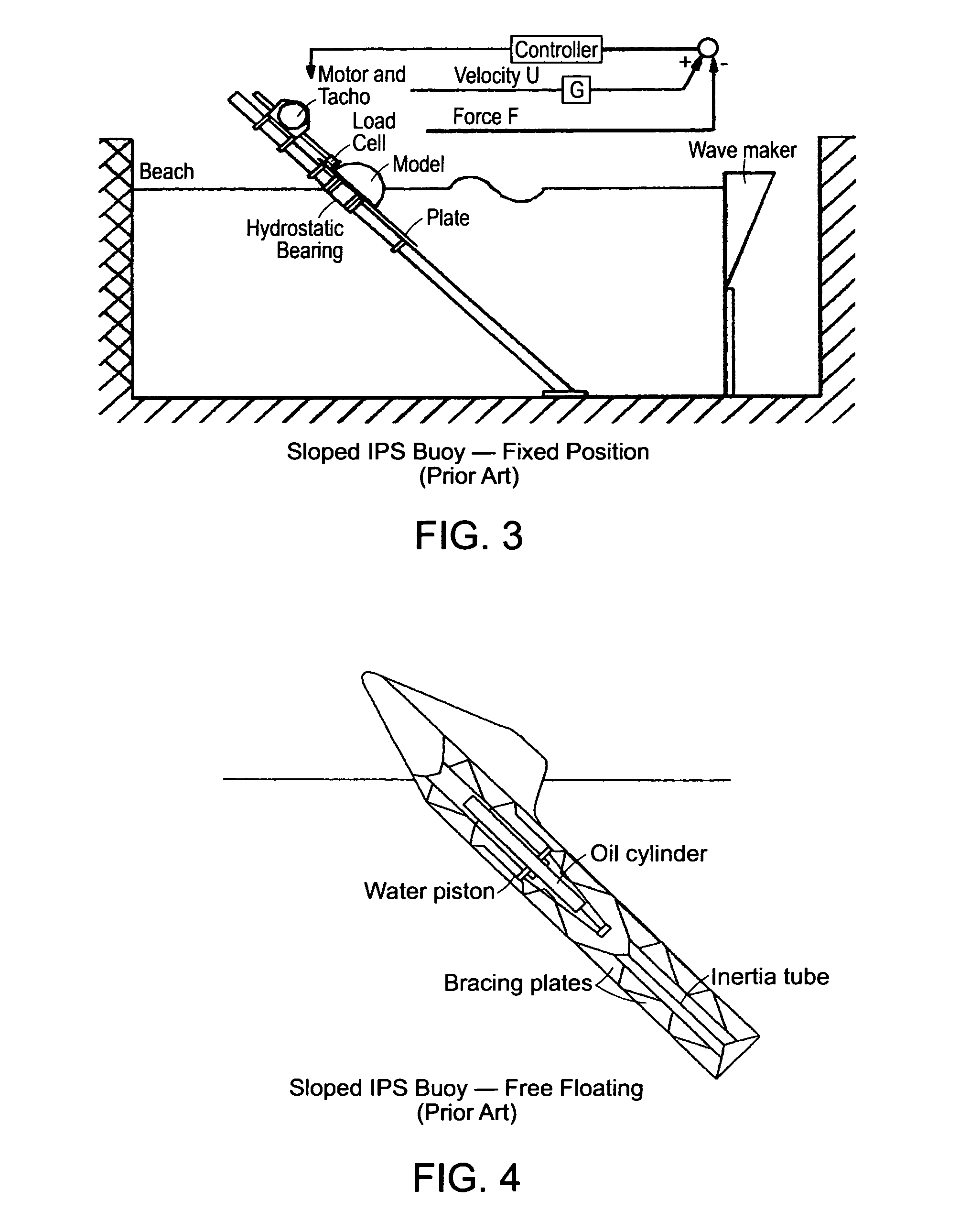Submergable sloped absorption barrier wave energy converter
a wave energy converter and sloped absorption barrier technology, applied in the sub field, can solve the problems of increasing the challenge of severe sea-state survivability of owecs, increasing the cost of owecs both expensive and unresponsive (inefficient), and increasing the cost exponentially. , to achieve the effect of optimizing or maximizing energy capture efficiency, improving frame heave, surge and pitch stability
- Summary
- Abstract
- Description
- Claims
- Application Information
AI Technical Summary
Benefits of technology
Problems solved by technology
Method used
Image
Examples
Embodiment Construction
[0035]The features and limitations of the Prior Art OWECs of FIG. 1 through FIG. 4, inclusive, are previously described and discussed in the previous Distinguishing Features over Prior Art section.
[0036]FIG. 5 describes an embodiment of the present invention wherein one or more relatively lightweight floating elongated buoyant float(s) or barrier(s) 9 having a wave front facing and impacting front wall 1 which may be buoyant or non-buoyant, concave (shown), flat and slope upwardly and outwardly only (per FIGS. 9 and 11) or convex (not shown), rigid (shown) or a hinged panel (per FIG. 9 or 11) or a flexible wave impacting front wall (not shown), and a relatively flat and upward and rearward sloped bottom wall 2. Said floating barrier(s) 9 can have an open top cavity (shown) or be solid or hollow (not shown). Said elongated barrier 9, or multiples of said barriers 9, arranged side-by-side, will have a horizontal width, aligned approximately parallel to oncoming wave fronts, substantia...
PUM
 Login to View More
Login to View More Abstract
Description
Claims
Application Information
 Login to View More
Login to View More - R&D
- Intellectual Property
- Life Sciences
- Materials
- Tech Scout
- Unparalleled Data Quality
- Higher Quality Content
- 60% Fewer Hallucinations
Browse by: Latest US Patents, China's latest patents, Technical Efficacy Thesaurus, Application Domain, Technology Topic, Popular Technical Reports.
© 2025 PatSnap. All rights reserved.Legal|Privacy policy|Modern Slavery Act Transparency Statement|Sitemap|About US| Contact US: help@patsnap.com



